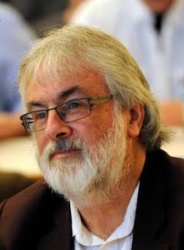Nobel Support for a Noble Cause
Nobel Support for a Noble Cause
Nava Thakuria
August 20,
2011
As India is uprising against corruption, the Nobel laureate Burmese pro-democracy leader Daw Aung San Suu Kyi has extended her support to the movement. The largest democracy in the globe has witnessed a second Freedom Movement (against corruption in high places) under the leadership of Gandhian Anna Hazare. Hundred thousands citizens of the huge country have marched to the streets for a specific anti-corruption law by the government.
The Union government led by Indian National Congress party initially overlooked the issue and submitted a seemingly week anti-graft law in the Parliament. Some of Congress leaders even made ridiculous statement that Anna himself was a corrupt person and so he does not have right to speak against corruption. Anna Hazare was also put in Tihar jail for some time, but soon the government faced the hit and retreated.
Meanwhile the civil society groups under the banner of India Against Corruption have poured their supports for a powerful Jana Lokpal that may even question the Prime Minister’s Office in need. Emerged as a living legend for over one billion Indians, Anna Hazare continues the protest in the form of hunger strike in the capital city, New Delhi. Hundreds of Indian cities have witnessed various demonstrations to showcase their solidarity to Anna Hazare’s initiative.
A follower of Bapu (India’s father of the nation, Mahatma Gandhi), Anna Hazare declared that his fasting will continue until the parliament enacts the Jana Lokpal by August 30, 2011. If it is not entertained his supporters are advised to go for Jail Bharo (courting arrest) programme nationwide.
Suu Kyi, who also preaches Gandhian philosophy, expressed her heartiest solidarity to the present uprising of civilians for a corruption free India and commented that corruption is in fact rampant in Burma too. Appreciating Anna Hazare for his mission, the Burmese icon expects more people would come forward to raise voices against socio-political evils in the coming days.
Talking to a journalist (representing an Indian media group) in Rangoon recently, the National League for Democracy chief argues that the fight against corruption and injustice will ‘go on for generation after generation’.
Meanwhile, Suu Kyi met the Burmese President Thein Sein on August 19 and it was their first meeting. In fact, after her release from house arrest in last November, the Lady was invited to the new capital in Nay Pie Taw, which is around 330 km north of Rangoon, for the first time. The Burmese media reported that after meeting the President for about a hour, Suu Kyi also met Thein Sein 's wife, Khin Khin Win and other government officials.
The Burmese exiles have seen this development as a positive gesture from the military controlled authority to Suu Kyi. Even some of them believe that the Burmese regime is still apprehensive of another uprising in Burma for a real democracy and the Indian experience may ignite the people of Burma for such movement.
“We are optimistic about the people’s movement against corruption in India and expecting that it will make definite impact on Burmese people for their long standing movement for a democratic regime in Burma,” said Dr Tint Swe, a senior Burmese political leader associated with Suu Kyi’s NLD.
Speaking to this writer in a telephonic conversation, Dr Swe also added that the uprising in India will definitely make an impact on Burma as Suu Kyi had already extended her support to the movement. He, of course, admits that the military controlled government will never allow mass protest in Burma, but even then an under current may influence the aspiring people inside Burma for another upsurge for democracy and justice in the Southeast Asian country.
ENDS


 Martin LeFevre - Meditations: In A Global Society, There Is No Such Thing As “National Security”
Martin LeFevre - Meditations: In A Global Society, There Is No Such Thing As “National Security” Binoy Kampmark: Secrecy And Virtue Signalling - Another View Of Signalgate
Binoy Kampmark: Secrecy And Virtue Signalling - Another View Of Signalgate Gordon Campbell: On The Americanising Of NZ’s Public Health System
Gordon Campbell: On The Americanising Of NZ’s Public Health System Ian Powell: Trumpian Health Leadership
Ian Powell: Trumpian Health Leadership Eugene Doyle: Disruption - Historians Challenge Russophobic Propaganda
Eugene Doyle: Disruption - Historians Challenge Russophobic Propaganda Ramzy Baroud: War, Doublethink, And The Struggle For Survival - Geopolitics Of The Gaza Genocide
Ramzy Baroud: War, Doublethink, And The Struggle For Survival - Geopolitics Of The Gaza Genocide